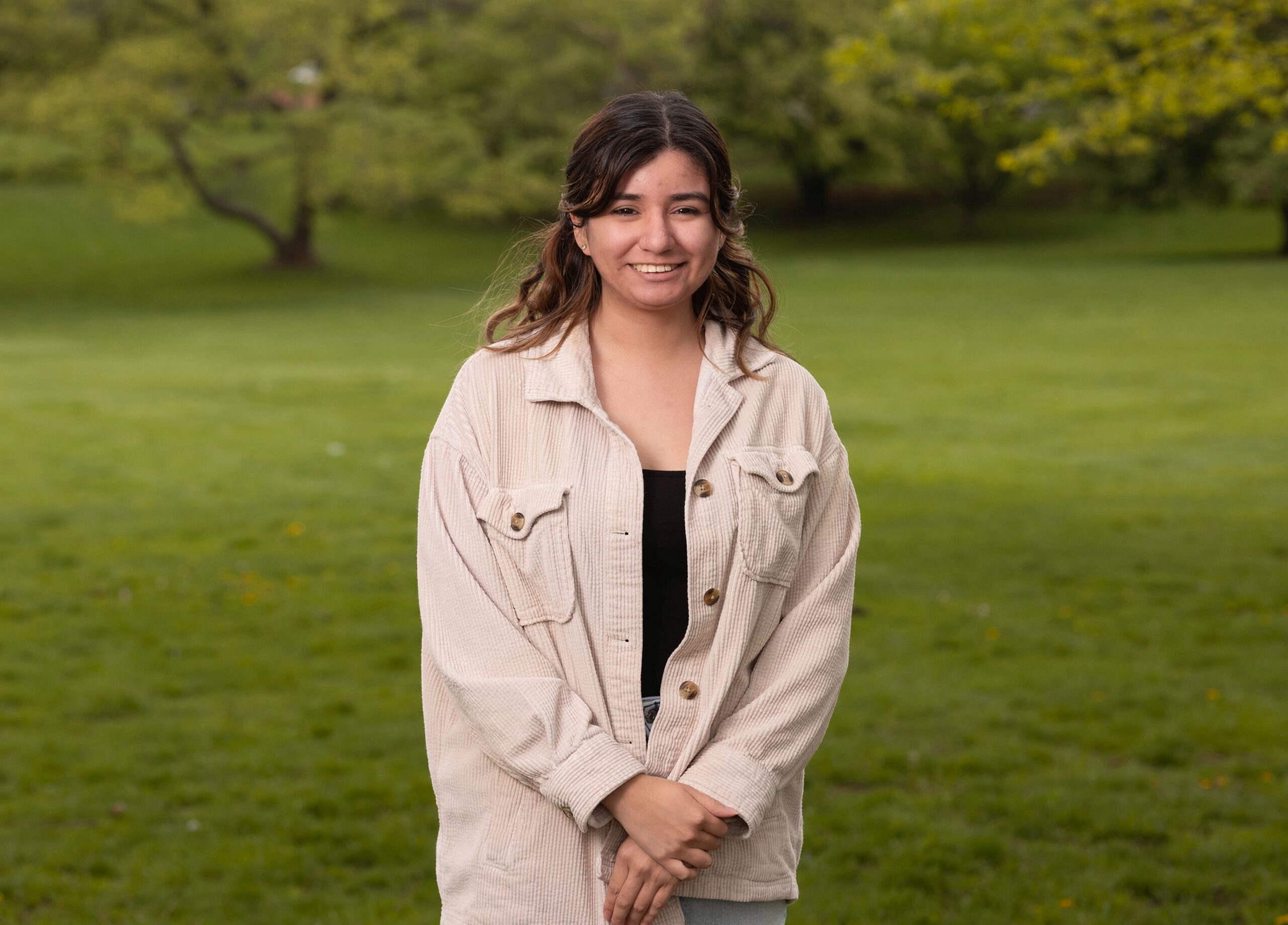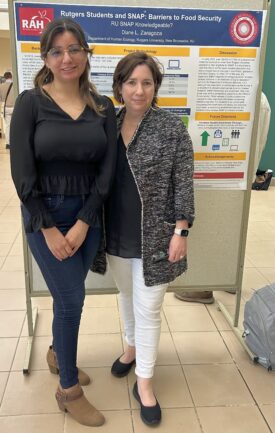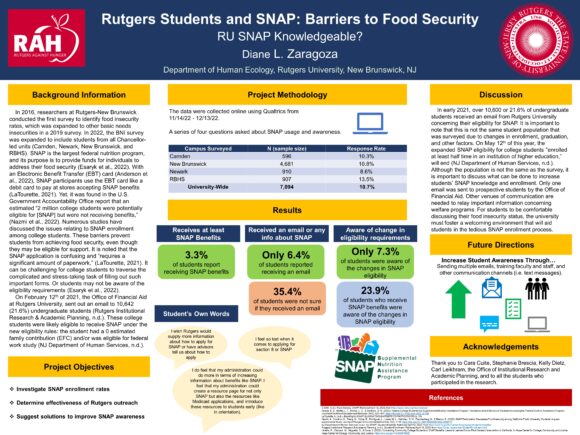
Diane Zaragoza. Photo: John O’Boyle.
Diane Zaragoza will graduate next month, having majored in Environmental Policy, Institutions and Behavior (EPIB) in the Department of Human Ecology. She sat down with SEBS/NJAES Newsroom to talk about her passion for the environment, her SEBS journey, and how she plans to do her own part to protect Planet Earth.
Why did you choose SEBS?
I chose SEBS because knew I wanted to do something in environmental science and had been taking classes in this area in high school. I was fortunate to have gone to High Tech High School in Secaucus NJ where you can choose a major such as Environmental Science, which allowed me to take classes in soil science or water resources. I took AP Chemistry and AP Biology.
And, while I was there, I participated in a dual enrollment program at Hudson County Community College and completed my associates degree there by the time I graduated high school. It was a really good education in the hard sciences, and I chose SEBS because of the EPIB major because I wanted to learn more about the policy side of things.

Diane Zaragoza with Cara Cuite at the EPIB Poster Session. Photo: Rachael Shwom.
How has SEBS prepared you for the future?
SEBS has given me a more nuanced understanding of environmental science. The EPIB program, especially, has enabled me to learn more about the human side of environmental science which is something I will be focusing on in grad school and my future career.
I’ve also earned that there are deeper meanings. In high school a lot of my thinking was on the surface. Now I’m able to think more deeply and meaningfully.
SEBS has also definitely made me a more well-rounded person. And I’ve had some great professors. Cara Cuite is my advisor. I did an internship with her and am currently working on a Capstone project with her.
“Diane was in my Research Methods class in Spring 2022. It was obvious in class that she had a real facility for doing research, so I was thrilled to have her join our project team. I have continued to be impressed with Diane and how smart and driven she is. I can’t wait to hear all about her successes in graduate school next year!” Cara Cuite, assistant extension specialist in the Department of Human Ecology
Tell us more about the internship and your capstone project
 I was a research assistant for the for Cara Cuite’s basic needs insecurity survey, a systematic investigation into food insecurity on the Rutgers-New Brunswick campus. This involved gathering materials to be used as references. I also helped to conduct ‘Think Aloud’ surveys. Participants read the survey and they say, out loud, whatever comes to mind. It helps to evaluate if the survey is intuitive as well as if it’s giving you the answers you are looking for.
I was a research assistant for the for Cara Cuite’s basic needs insecurity survey, a systematic investigation into food insecurity on the Rutgers-New Brunswick campus. This involved gathering materials to be used as references. I also helped to conduct ‘Think Aloud’ surveys. Participants read the survey and they say, out loud, whatever comes to mind. It helps to evaluate if the survey is intuitive as well as if it’s giving you the answers you are looking for.
For the capstone project entitled ‘Rutgers Students and SNAP: Barriers to Food Security’ I looked at the survey data to see what were barriers to SNAP knowledge among Rutgers students. I helped to code open ended responses to survey questions. This involved looking at responses and choosing a category that would describe what the answer was discussing. Coding helps turn the responses into data points.
I really enjoyed both the internship and capstone project. It’s good to work with a team. I learned to collaborate and found it rewarding.
What has been your primary motivation and what challenges did you face along the way?
My parents have always been supportive and have encouraged me to challenge myself. “Give it a try!”
My last year of high school was totally online due to the COVID pandemic. Adjusting then to the in-person experience at Rutgers was a challenge. But so far, I’ve been on the Dean’s List every semester!
What are your future plans?
I’ve been accepted by Montclair State University for Fall 2023 as a grad student in their master’s degree program in Sustainability Science. This area is also what I would like to focus on for my career. I’d like to do environmental/sustainability consulting. It merges environmental policy with the humanistic side of things, along with more of the hard environmental science.
Eventually I would like to get a job with a firm that is contracted by businesses, and state, local and federal governments to make sure their project is done safely in terms of environment impact, with no negative future consequences.

